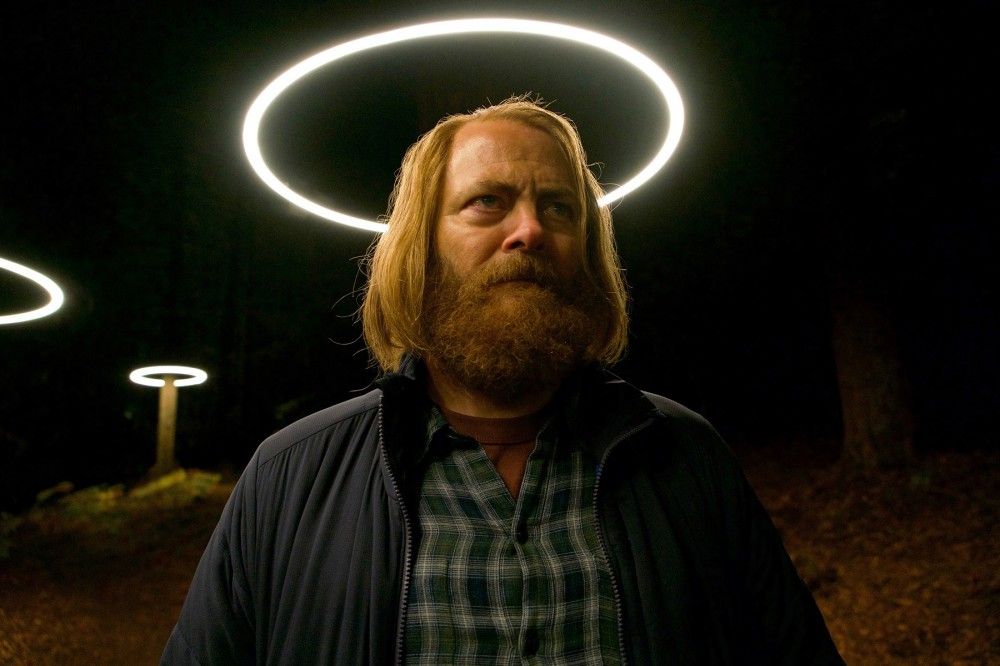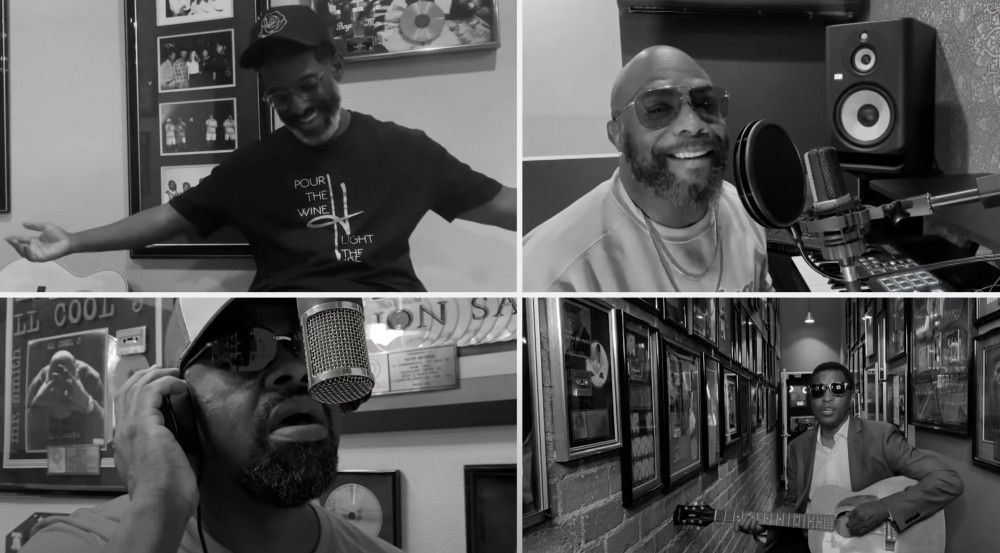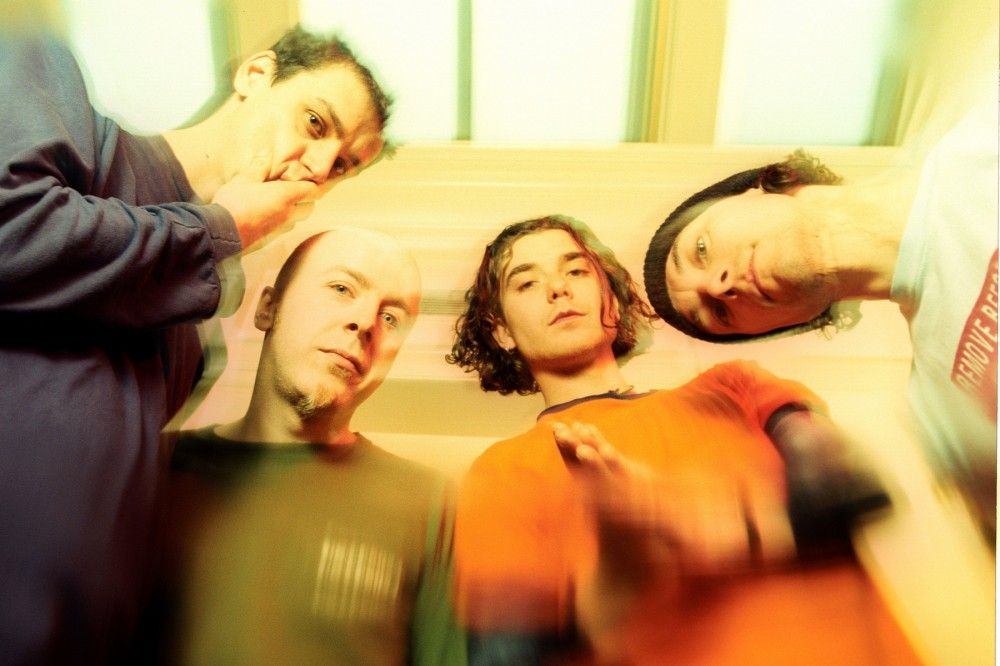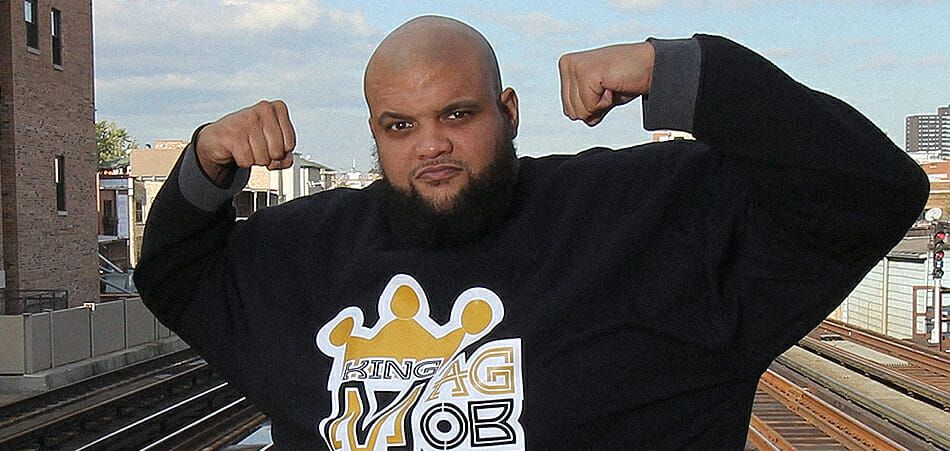
'Devs' Creator Alex Garland Breaks Down the Series Finale
This post contains full spoilers for all eight episodes of Devs.
When Alex Garland’s sci-fi thriller Devs premiered last month (as the start of the new FX on Hulu imprint), I was dazzled by the presentation of the story, but just as frequently puzzled about what exactly was happening, and why.
The miniseries’ finale premiered today. In it, fugitive coder Lily (Sonoya Mizuno) invades the Devs building to confront sinister tech mogul Forest (Nick Offerman) about what goes on there and why her boyfriend was murdered to protect the project’s secrets. The Devs machine allows Forest and his lieutenant, Katie (Alison Pill), to see any moment in the past, present, or future, which only supports Forest’s faith in a determinist view of the universe, where free will is an illusion. Lily’s arrival seems to be fulfilling her destiny, only for Lily to throw away the gun that the machine had depicted her using to murder Forest. Forest’s dismay over his entire belief system being proven wrong is short-lived, because Devs coder Stewart (Stephen McKinley Henderson) sabotages the magnetic lift they’re riding in, killing both Forest and Lily.
But the tale concludes with both finding themselves inside the machine itself, living in an alternate reality where none of the show’s events happened. Here, Forest — or, at least, one version of him — can reunite with his late wife and daughter, while Lily is free to pursue a relationship with ex-boyfriend Jamie (Jin Ha), who in the real world was murdered by Forest’s enforcer, Kenton (Zach Grenier). The series’ title graphic morphs a bit, turning Devs into the project’s actual name, Deus — and thus making the entire story feel like a companion piece to Garland’s directorial debut, the 2014 film Ex Machina.
With the story complete, I spoke with Garland about some of the Devs mysteries I couldn’t solve — and asked him to go deeper on the series’ most addictive aspects, like the strange production design and that nightmare-inducing score (by Ben Salisbury, the Insects, and Geoff Barrow).
The score for this show is absolutely haunting. What did you tell the team that you wanted Devs to sound like?
We start talking about it and working on it even before preproduction starts. We talked about some of the motifs, like repetition. And we talked about the slightly cult-y, devotional vibe within the company. And about trying to get a sense of awe into the science, and trying to echo religious music in various kinds of ways. It was a really wide-ranging brief. The series is eight episodes, and it goes through all sorts of different states. The one thing we knew, and agreed on very early, wasn’t going to end up happening is that they would write a bunch of cues for the first episode, and we would recycle and repurpose them through the eight episodes. It was pretty obvious from the beginning that each episode would have a lot of original score written for it. So in the end, their workload was just massive.
Some of those cues really stuck with me, like when Kenton shoves Jamie into the bathroom at the end of the fourth episode.
One of the things about Geoff and Ben is they’ve got this very, very wide palette. They’re very good at delicacy and beauty and melody, and other times, they’re good at just disturbing the fuck out of you. They can score a love scene between Lily and Jamie, and they can score someone getting suffocated to death. I think they’re exceptional composers. Also, I think they were well-complemented by Insects members] Bob Locke] and Tim Norfolk].
Where did the idea for the giant statue of Forest’s daughter come from? Was any part of it real, or was it all made digitally?
It’s all VFX. We shot the little girl with this huge array of cameras in a variety of postures. Really, she just stood there and I chatted to her, and she sometimes looked up and down. One of the shots that came out was this really unexpected posture that in a funny way you’d never choose for a statue. She has this look of slight confusion and wonder, and she’s cupping her hands. It just seemed perfect. The original idea was, “How can this guy Forest show the extent of his devotion as massively as possible, given the infinite wealth of these huge tech companies, and the way they’re given to huge statements about themselves?” So the statue and all the iconography the girl creates seemed right for that. But it was almost as simple as: It made me laugh. The idea of this tiny little girl towering over redwoods struck me as weird and surreal and oddly humorous.

Alison Pill in Devs. Gold was a recurring design motif in the Devs building. Miya Mizuno/FX
Why did you want so many things made of gold in and around the Devs building?
The idea was all about trying to make the science-heart of the story as beautiful and weird and kind of poetic as possible. That really stems from my own sense about science, which is that it’s often presented as something that is dry and arrogant and boring. I tend to see science as being weird and mysterious and lyrical. So the physical environment needed to reflect that. You go on this journey from the normal streets of San Francisco into this strange, twilight, gold, womb-space.
I believe it was Chekhov who said that if you put a floating gold cube in your first episode, it has to crash to the ground by the eighth.
I remember Chekhov saying that very well, how right he was laughs]! There is a Chekhov’s Gun in this, actually — in a weird way, it’s the homeless guy Pete. I felt like if you placed this person here as this recurring theme that you’re refusing to acknowledge in a narrative way, he’s always being dealt with in an inconsequential way. That’s a bit like Chekhov’s Gun. So then he’ll fly in and land like a ton of bricks at some point.
The tree lamps in the forest were particularly spooky. What was their genesis?
That’s a really good example of the way I work, actually. It’s quite easy, regarding directors, to think, “Oh, look at all the smart ideas they had.” Or if you don’t like the thing, “Look at all the dumb ideas.” That idea came from Lee Walters], our gaffer. He basically is in charge of the lighting. We were sitting around having a meeting, me and Lee and the production designers, and saying, “How are we going to light this path? Should we do uplighters, ’cause they’re kind of spooky? Or have floating lights, because that’s kind of weird?” Lee said, “I know exactly what to do. The light should go down, and not up, and it’ll give this weird sense of the trees being cut in half, and this weird darkness above.” We said that sounded great, and then he went off and did them.
“Weird” is a word you’ve used a lot already in this conversation, and one that comes to mind when I watch this show and your films, like Annihilation. How important is a sense of weirdness to the kinds of stories you tell?
In private ways that aren’t probably particularly easy to spot. I’m usually on some level trying to be subversive. And weirdness is a form of subversion. Some people are really good at doing that in a loud, obvious, striking way. And I work at a slightly more muted level. The thing I’m looking for is a slightly dreamlike, shifting sense of surrealism, where you can move quite naturally between something that seems very normal and day-to-day, and something that feels deeply hallucinogenic. And it’s how to drift between those two spaces without the whole thing falling to bits.
When did the idea occur to you that the true title, Deus, would make this a pairing with Ex Machina?
You’ve already made the Chekhov’s Gun allusion. Another theatrical one is deus ex machina. I had it in my head that there was a companion piece to Ex Machina. If Ex Machina is about a man who is trying to act as if he’s God technology and science, I thought there’s a companion story, which is about people not trying to act as if they’re God, but trying to create God. So this was the deus bit of the deus ex machina. Right from the beginning, that was the thought process. I knew that it might land like a bit of an “a-ha” reveal, which is kind of why Forest, when he does say it, he slightly throws it away and says it’s a private joke — because on some level, that’s really all it is. It’s like the big statue; it half made me laugh or smile, but it was built into the intention of the piece.
Was there ever a version of this idea in your head that was a feature film, or was it always this miniseries?
It was always a TV show. If I set myself the task of “I’m now going to re-edit it as a two-hour movie,” I can tell you, flat out, I wouldn’t be able to do it. I’m sure there’s some editor who would stick his or her hand up and say, “I know how to do it,” but it was always conceived as a TV show. Personally, I can’t imagine how to do it as film.
Is there something in particular you would point to that could only be told in the TV version of this story?
Almost everything. If you were gonna cut it down to two hours, you’d have to lose an enormous number of the conversations and exchanges the characters have. You’d have to say, “We are only going to follow a story of a young woman attempting to unravel what happened to her partner,” rather than have a strange relationship between two software engineers. It would enter all parts of the story. You wouldn’t be able to hold on a shot as long as I wanted to, to sustain a cue as long. I’m not trying to be disparaging to film; I love film. It just works in a different way. There are people out there who achieve extraordinary things in film, and nothing can change that. But television is a different medium, and it gives different space.

Lily (Sonoya Mizuno) gets a look at the Devs machine in action. Miya Mizuno/FX
Was Forest’s original plan always to project himself into the machine at the end?
It’s always his plan, because this is how he gets to actually be with his daughter again, rather than just watch his daughter. The thing that changes for Forest is that he has adhered to a view of quantum mechanics that does not include many worlds. There’s just one world, which means he can recreate his daughter exactly as she was, and rejoin his life exactly as it was without the car crash happening. What he is forced to accept in the end is that there will be versions of him that can experience that, but also versions that will not experience that. So he has a more poignant end result than the one he was looking for.
So even though he believes in determinism, Forest was going to be able to craft a version of reality that was exactly the same except for the car crash, and go there?
That’s exactly right. In effect, what he’d be able to do is rejoin that timeline, but not make the phone call to his wife and not, therefore, be the cause of the car crash. And then he’d be able to experience the unfolding of his life exactly as if the thing never happened. And within that state, it would be a world of equal status to the world that you and I are talking in right now. The problem is that the world is not the simple, deterministic world he wants it to be. So he has to accept a different version.
Is determinism a philosophy that you yourself ascribe to?
Any position I could take on that is only like a belief system. I just simply don’t know. But my instincts are towards determinism rather than against it. My hunch is that the thing we call free will is not what we think of it.
Forest’s line about how life is like pictures on a screen felt like a comment on how much time and emotion we invest in watching television and movies like this.
That was an idea that, for me, floated out of it. I was thinking, “So if it’s really deterministic, and you are seeing and experiencing these things, and caring about them, but you have absolutely no free will over it, that is exactly like my day-to-day job.” The intention is that a viewer will watch these stories unfold and care about them, about the characters and outcomes and themes. I didn’t go into it with that realization. It came to me with a slight sense of surprise, I guess, and that then led to that line. His line came out of me thinking, “Shit, that’s my day job.”
What do you see as the practical application for the machine, beyond having the world’s greatest high-definition television that can show you any moment from history?
That in itself would be a huge practical consideration. It would be able to explain so many things. It wouldn’t just tell you what happened during the Second World War. It could tell you what Jesus was actually like, what did he actually say, how did life on this planet actually originate? All of that would be pretty remarkable, let alone the ability to look into the future. And Christ knows what that would be like. Really, that’s it. The practical consideration is embedded into it. But there was this other aspect, which is thinking that these amazing things are being created called quantum computers, and we apparently live in a quantum mechanical world, and thinking, “Wow, maybe a quantum computer would be the best way of modeling the world we live in.” So it’s not just what the machine can do, it’s how it does it that struck me as strange and interesting.

Cailee Spaeny as Lyndon. Miya Mizuno/FX
You cast a female actor, Cailee Spaeny, to play Lyndon, who’s referred to by others with male pronouns. What was that character’s gender meant to be?
Lyndon’s a boy. It was a process, really. It began by starting to look for a boy, and just feeling that something wasn’t right. It was as much to do with physiology as anything. Above a certain age, there’s all these things that happen to boys that have to do with shoulders and the structure of their face, and having to do with things like shaving. There was a particular quality of youth that I was hunting for, and it just occurred to me at a certain point, “What if I cast a young woman to play this boy?” I discussed that with the casting director, Carmen Cuba, and she said, “You should meet this actress, Cailee Spaeny.” And as she walked through the door, I thought, “Yeah, that’s him. That’s Lyndon.” I never saw anyone else for the role. The search stopped.
Finally, one of the things I enjoyed about the discourse over Annihilation was how little agreement there was over exactly what happened, why, and how. How comfortable are you with ambiguity, maybe even bordering on confusion, in the work that you do?
In a way that surprised me, I’ve become supercomfortable with it. It was a lesson that started right at the beginning of my working life. I wrote this book called The Beach, about backpackers in Thailand. It was written as a critique of the backpacking scene, and lots of people read it as a celebration of that scene. It taught me early on that my intentions weren’t that important. It took me a long time to fully take that idea on board. I used to resist it and go, “No, no, what I’m trying to say is this.” Then I realized that’s almost in opposition to what stories are, and that half of the story is what the viewer brings to the story. The storyteller, who probably thinks of themselves as omniscient, is just 50 percent of the whole deal. And you and I and everybody would have experienced that when we argued about a book or film or a television show or a piece of music, and of course it’s just completely subjective. So in that respect, I’m comfortable with it. Sometimes, when something is interpreted in a way I feel may be politically oppositional, then it can be difficult. But I’ve learned to accept it.



